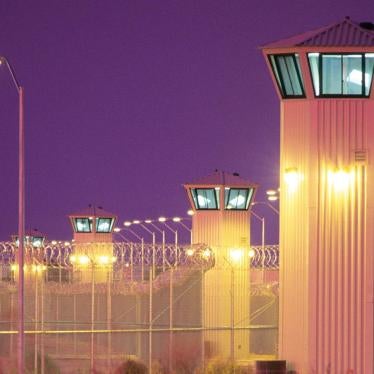In an important step forward for juvenile justice, Governor Jerry Brown signed into law a bill giving young offenders in California a second chance. Human Rights Watch and others campaigned for years against California’s extreme juvenile sentencing, and this bill officially gives youths sent to prison for life an opportunity for parole.
Until now, in California, “life without parole” meant just that – it was a sentence to die in prison. The United States is the only country in the world to impose this sentence on youth 17-years-old or younger.
But the US legal system is beginning to take into account the ability of young people to grow, change, and learn from their mistakes.
California’s Senate Bill 9 will allow a judge to review these cases and, if warranted, impose a sentence of 25-to-life instead, offering youth sent to prison for life the possibility of parole.
This is part of a growing trend. Last June, in a landmark decision, the US Supreme Court struck down mandatory sentences of life in prison without parole for youth. The judge cited our research in his decision, which resulted in review hearings for the majority of these cases across the nation. But the decision left behind the more than 300 youth sentenced to life without parole in California, because of the structure of the state’s laws.
Human Rights Watch began working on this issue across the United States in 2004. A few years later we focused on California, as its criminal justice policies are widely followed across the country. In 2008, we published our first report on California. We updated the California research in 2012, also releasing a national report on prison conditions faced by youth sentenced to life without parole. Together with our partners, we produced two short films to help spread our message —“What a Second Chance Looks Like” and “Speaking from Pain: Victim Family Members on Murder and Life Sentences for Youth”.
We also mobilized thousands of individuals and over 100 organizations in an important effort to build broad public support for juvenile justice reform, collaborating with victims’ family members, law enforcement officials, people of faith, youth, and communities most affected by the use of extreme sentences for juveniles. This coalition, and the strong work on the part of diverse partners, made the campaign effective.
Our research has shown that laws sentencing juveniles to life without parole are unjust. We estimate that across the nation, 59 percent of youth sentenced to life without parole are first-time offenders, without even a shoplifting record. In California, where the more than 300 youth serving life without parole constitute more than 10 percent of the nation’s total, African American youth receive this sentence at 18 times the rate for white youth.
An estimated 45 percent of those serving such sentences in California for murder cases were not the killers. Many were convicted of felony murder, or for aiding and abetting the murder, because they acted as lookouts or were participating in a robbery when a murder took place.
The youth were often punished more harshly than their adult co-defendants. In nearly 70 percent of the 130 California cases we examined in which the youth was not acting alone, at least one codefendant was an adult. In the majority of those cases, the adult received a lower sentence than the juvenile.
California’s new law goes well beyond what the recent US Supreme Court ruling envisioned, as it calls for periodic, meaningful review of these individuals after they have grown up and matured. We hope other states will follow its example, and are planning to use these tremendous steps forward to continue to challenge extreme sentences for youth in California and across the country.






